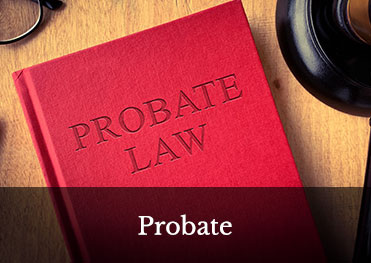Nassau County Wills & Trusts Attorney
If this is your first time visiting, greetings. For those of you returning, welcome back.
The purpose of this website is to provide a very basic overview of the legal services offered at C. Haner Law, PLLC. In perusing our site, if you find that you need further information on a particular topic, or if the topic you are hoping to learn about cannot be found, never hesitate to pick up the phone and call our office.
In preparing this website for our clients and future clients, we’ve attempted to describe our legal services in a very conversational and easy to understand way. We hope that you find our site informative, useful and user friendly. Read more
What Does an Elder Law Attorney in Woodbury, NY Help People with?
An Elder Law attorney acts as an advocate for elderly people and their families. The practice of Elder Law can include many different legal matters that affect the elderly, such as long term healthcare planning, guardianship, Medicaid planning, asset protection planning, and estate planning. An Elder Law attorney in Woodbury, NY focuses on the unique legal needs of aging adults, which are different than the needs of an average younger adult.
The duties taken on by Elder Law attorneys can reach much further than overall estate planning and into the everyday lives of senior citizens and their families, when it comes to nursing home care planning and guardianships. An experienced Woodbury, NY Elder Law attorney is equipped to handle very delicate and emotional needs of older, disabled adults and their loved ones. Handling these special needs can become a very important part of the services Elder Law attorneys provide.
How Can a Woodbury, NY Elder Law Attorney Help Me or My Loved One in Particular?
An Elder Law attorney focuses their practice of law on:
- Explaining the importance of wills, trusts and proper estate planning, which includes any necessary planning for minors or adults who have special needs, probate processes and any other matters likely to surface.
- Creating a durable power of attorney and health care proxy to allow someone else to make financial and/or health care decisions for a person who becomes incapacitated.
- Providing guidance on medical care and healthcare planning, including long term nursing home care options and Medicaid planning.
- Expressing the importance of financial planning, including income planning, retirement accounts, asset protection and preventing issues with gifting.
- Assisting with selecting and appointing a legal guardian.
- Helping families to locate long term care facilities for their elderly loved ones and managing costs of assisted living and nursing care.
- Explaining the rights of nursing home residents.
- Drafting a living will or advance directives, which should include a durable power of attorney, health care proxy and living will, along with other estate planning documents.
What is Medicaid Planning and does it require an Attorney in Woodbury, NY?
Medicaid planning includes arranging your or your loved one’s property in a way that will prevent all the assets from being used to pay for nursing home bills. Medicaid planning is most affective when it starts long before the need for nursing home care arises. That being said, it is almost never too late to protect at least some assets. Even those who are already in a nursing home can often be helped by a Medicaid planning attorney in Woodbury, NY.
Making an error in structing assets to qualify for Medicaid can end up being a financial disaster for you or your loved one, requiring you to pay out of pocket for nursing home care for months or even years. Medicaid rules can, and very often do, change on a yearly basis. It is incredibly important to receive guidance from a Woodbury, NY Medicaid planning attorney before submitting any application for Medicaid, when it comes to long term care. Even if you don’t expect to need nursing home care for yourself or your loved ones, it’s a very good idea to seek professional advice on how Medicaid works in case you face an unexpected need in the future.
Do I Need an Attorney to Probate a Will in Woodbury, New York?
If your estate plan includes a last will and testament, then, after your death, the will must be presented to the Surrogate’s Court for approval, a process known as probate. The probate proceeding is primarily concerned with having the Surrogate Judge approve of the genuineness of your will, which will make your will and the terms of your will effective. Once the will is approved by the Surrogate’s Court, your assets can be given out to your heirs and beneficiaries, after all your debts are paid.
In New York, probate proceedings are handled in the Surrogate’s Court in whichever county you lived in when you died. The sum of all your assets, property and personal possessions makes up your estate. A representative will be appointed by the court via letters testamentary to administer your will, and he or she will be referred to as the executor. Only an estate that is valued at over $50,000 is required to be probated, as long as there is a will. The court uses a separate small estate proceeding to administer estates valued under $50,000. There are certain assets, including insurance policies, retirement accounts and bank accounts with a named beneficiary, which are allowed to pass without the probate process. These are known as non-probate assets.
When a probate proceeding is necessary, the executor who is named in the will must file a petition in Surrogate’s Court, along with the original will. This petition must include the correct date of death, the names of all the beneficiaries named in the will, all legal heirs, in case the will is deemed invalid, and the current estimated value of the estate. All interested parties must also be notified of the probate proceeding. A probate attorney in Woodbury, NY is necessary to assist you in meeting all of these requirements and avoiding additional time and expenses throughout the probate process. Read more
Client Testimonials
“My experience with Christopher was very professional and reassuring. He helped to navigate through a difficult situation with positive results.”
What is the Difference between a Will and a Trust?
A will and a trust are both useful estate planning tools and they serve different purposes. Often, combining both creates the most effective estate plan. While a will goes into effect after you died, a trust can take effect as soon as your Woodbury, NY trusts and estates attorney sets it up. A will is simply a document, created with the help of a wills attorney, that states exactly who will receive your property after your death. A will should also appoint a legal representative, who will be responsible for carrying out the directions spelled out in the will.
A will only covers property that is held in your sole name when you die. It does not at all affect property in trust or joint tenancy. A trust is limited by only affecting property that has been properly transferred into the name of the trust. A main difference between a will and a trust is that a will needs to pass through probate. A court must oversee the administration of the will and confirm that the will is valid. A trust is allowed to pass outside of the probate process, without court involvement, which can save a great deal of time and money. A trust can also keep your estate private, unlike a will, which is part of public record. Your trust, on the other hand, is private, and simply administered by your trustee, who typically should seek the guidance of a trusts and estate attorney in Woodbury, NY.











